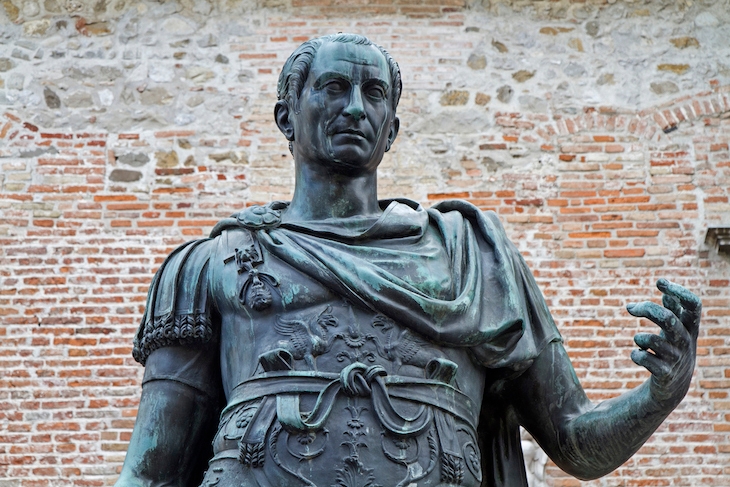So: Boris triumphans, ready to deliver a 140-seat majority for the Tories and lead the UK out of Europe and on to greater triumphs? The shade of an Athenian statesman might offer a warning.
Themistocles (c. 524-459 bc) came from an obscure family, but early on conceived a passion for politics. His father ‘pointing out some ancient triremes, mere hulks abandoned on the seashore, said that was what happened to leaders when the people decided they were irrelevant’. This merely spurred him on.
Themistocles flourished in the direct democracy invented in Athens in 508 bc. He built up a following among the poor, was said to know every citizen by name, and helped many with difficult court cases. The elites regarded him with great suspicion. In 493 he urged the Athenians to become a naval power and develop Piraeus into the best harbour in the Aegean, in the process turning Athens into a major trading centre. Since the fleet was manned by the poor, this greatly increased their influence and so Themistocles’s popularity in the direct democracy. He helped defeat the Persians at Marathon (490), and when in 483 a rich vein of silver was struck in the Laurium silver mines, he convinced the assembly to use it to enlarge the fleet. This was the key to the defeat under his command of the returning Persians in the sea battles of Artemisium and Salamis in 480. Themistocles continued to promote the development of Piraeus and Athens’s naval supremacy. He was the talk of Athens. But, as father warned, the wheels eventually came off: envious and vengeful opponents, we are told, had him ostracised and he fled the country, dying abroad.
If he becomes prime minister, Boris may well turn out to be as inspiring, imaginative and far-sighted as Themistocles. But being so incredibly popular, he already has many vindictive and malevolent enemies (and that is just among the Tories), keenly awaiting a gaffe. So, with Brexit completed and a 140-seat majority tucked away (well done, Boris), one could easily foresee a situation in which the party might prefer ‘a safer pair of hands’. The people felt the same about Boris’s hero Churchill in 1945 after the defeat of the Nazis.





Comments